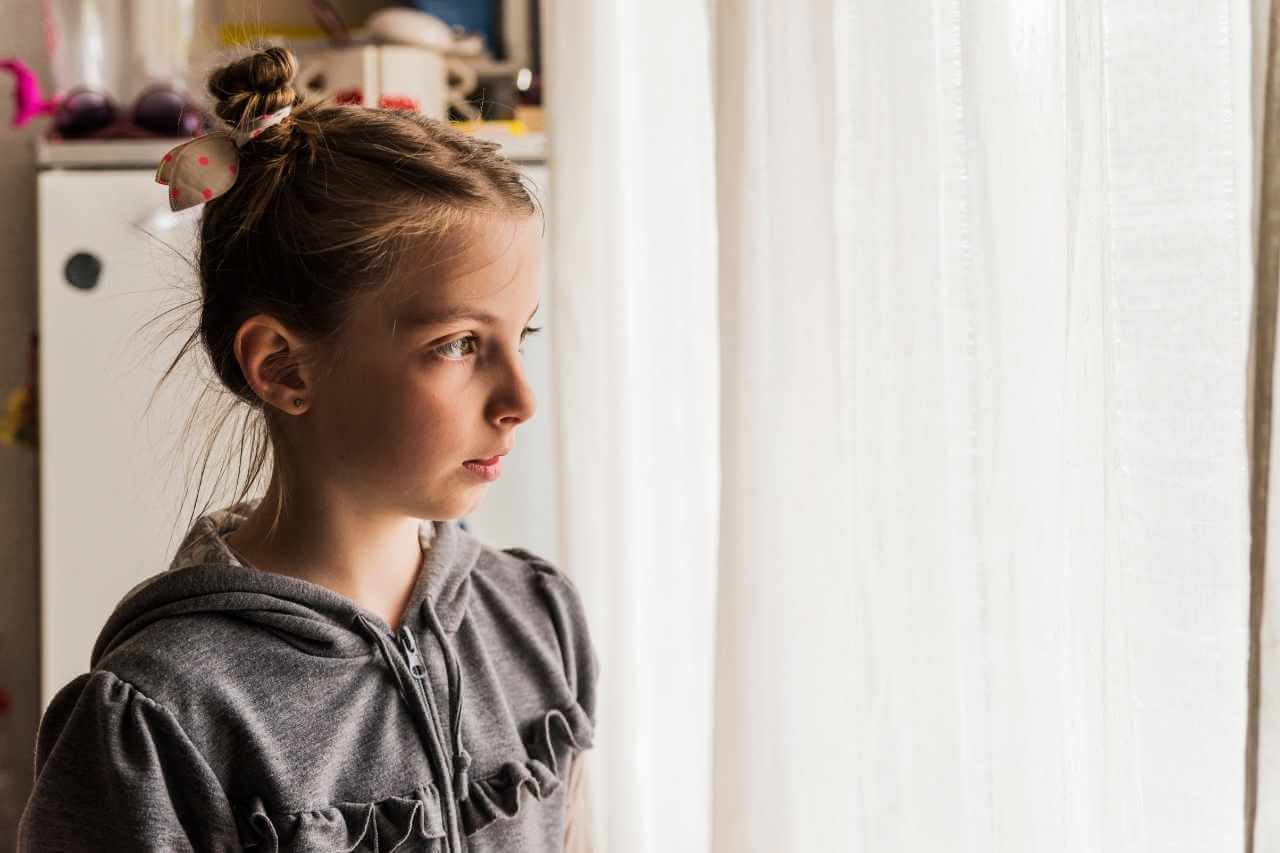Is your child acting more sad than usual? In this article, we’ll talk about how parents can identify and treat depression in their children.
Many people think of depression as an illness that only affects adults; however, the Centers for Disease Control and Prevention estimate that 3.2% of children and adolescents aged 3 to 17 are affected by it (CDC). It’s simple to be a kid, yet being a kid can be difficult and unpleasant. If your youngster seems a little down, how can you tell? Diagnose, analyze, and treat depression in children with the aid of our guide.
Childhood Depression Risk Factors
Although depression can affect any child, some may be more vulnerable than others. For example, persons who feel “different” because of their appearance or interests, or suffer from learning disorders or academic failure, are more likely to suffer from the illness. Depression is also more common in children who have significant health problems, long hospital admissions, or family concerns like divorce, domestic violence, or substance misuse.
Another important factor is heredity. Depressed first-degree relatives of a child have a two- to a fourfold increased chance of developing depression than do children without such relatives.
In most cases, depression is not caused by a single component but rather a mixture of several. Assigning blame or looking for a “smoking gun” is not helpful and may worsen therapy. It is widespread for youngsters to become depressed due to traumatic life circumstances, such as the death of a close family member or the illness of a close friend.
Stress at home or in the classroom can also lead to depression in children (regular fighting between parents, an impending divorce, etc.). Even though not all children will become depressed due to these events, it is crucial to search for the signs and symptoms of depression in children if they do. Within three months to a year following the onset of symptoms, most people who suffer from depression are cured.
Depression Symptoms in Children
For parents to fully comprehend their child’s distress, it’s critical to be aware of the indicators of depression in youngsters. Parental intuition is the only way to tell if their child is depressed. An increase in sorrow or anger that lasts most of the day for a week or longer could indicate that something isn’t right with your mental or emotional health. The things your child used to like, such as playing Tennis or hanging out with their neighbors’ friends, may have waned.
Older children may express their feelings by creating stories, poems, or artwork. It is helpful for your child to communicate her feelings; therefore, encourage her to do so. Seek expert counsel instead if the parent is worried about what their child has written or drawn.
The following depressive signs in children should also be observed by parents, compiled by the Anxiety & Depression Association of America and the American Academy of Child and Adolescent Psychiatry.
- Restlessness or difficulty getting to sleep
- Inability to focus
- Consumption is low
- Physical illnesses such as headaches and stomachaches are frequently reported.
- Pervasive drowsiness
- Friendships and preferred pastimes are becoming less important to the teen.
- Changing grades, getting into trouble in school, or refusing to attend class
- Consumption and sleep patterns can change as a result of new habits
- Anger, irritation, depression, sobbing, or mood swings are examples of these symptoms.
- feelings of inadequacy, low regard for one’s worth
- Admitting one’s death or taking one’s own life
- Attempts to flee one’s home
How to Help Children with Depression
Approach your child carefully if you suspect that they are depressed. The two minutes before kids dash off to school or bed are not the best times to communicate because no electronics or siblings will be around to distract you. Use non-accusatory, open-ended queries, such as: “I’ve noticed that you’ve recently lost interest in Tennis.
Are you sure about that?” What do you think about school?” Your child may say something like this: “Tennis has lost its appeal for me. I want to play soccer.” On the other hand, if they say something along the lines of “For some reason, I’m no longer a fan of Tennis. I’m not in a good mood,” ensure that they know you’re available at any time.
A “feelings doctor” can also be sought out by asking whether they would want to speak with one, in which case it is possible to locate one in the area (not all kids will want to talk about their emotions). Keep an eye on their progress and keep repeating, “I’d want to hear what you have to say. I’d want to know how I may assist you.”
While it’s true that if the child’s behavior or moods are restricting life or [affecting] family activities, if he’s not able to demonstrate the usual happiness or joy, withdraws from friends, has trouble sleeping, or says he’d like a conversation with someone, it’s time to seek help.
Obtaining Assistance for Childhood Anxiety
If you’re concerned about your child’s mental health, talk to your pediatrician, a psychiatric professional, or a child psychologist. For children with depression, psychotherapy and medication are the most popular therapies. Some doctors advocate a combination of both techniques of therapy.
Psychotherapy: Also known as “talk therapy,” psychotherapy utilizes a psychologist (or psychiatrist or social worker) to assist your child in resolving their distressing thoughts and emotions. Cognitive-behavioral treatment (CBT) is an example of this (CBT).
Pharmacology: Antidepressant medication will be prescribed to treat your child’s symptoms. Because antidepressants, just like any other medication, can cause side effects, parents should be on the lookout for these and other dangers when their child’s doctor suggests it.
Meaningful articles you might like: Covid-19 Linked to Increased Risk of Depression in New Mothers, Why Discussing Depression With Your Daughter Is Important, Teenage Depression And Anxiety Are Common Problems

